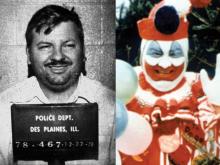
Assistant Attorney General Henry Petersen
Assistant Attorney General Henry Petersen was the Justice Department’s No. 1 Watergate investigator—and he regularly sneaked the Nixon White House privileged information that allowed the Nixon administration to forestall the Watergate inquiry until after the 1972 presidential election.
by Don Fulsom
Bob Woodward and Carl Bernstein relied on “Deep Throat” for inside intelligence on Watergate—the scandal they broke open 40 summers ago as rookie local reporters for The Washington Post. Over the next two years, with extensive help from their dreamboat of a secret source, “Woodstein” wrote more than 400 exclusive stories about what became our biggest political scandal.
Their main source was the ever-accurate Mark Felt, the No. 2 man at the FBI. Felt was a friend of, and father figure to, Woodward. A cagey pro at his craft, Felt had access to more Watergate clues, findings and secrets than just about anyone. His identity as The Post’s Subterranean Oracle (he favored post-midnight meetings with Woodward in a certain underground parking garage near a specific pillar) was not revealed until early this century, just before Felt’s death.
Far less known, but probably just as important, is that the prime architect of the Watergate cover-up, President Richard Nixon, had his own Deep Throat. The Nixon’s loyalist and critically placed surreptitious leaker was a little-remembered man named Henry Petersen, who was even better informed than Felt was, at least on breaking prosecutorial developments.
Fresh research validates a belief among many Watergate experts that Petersen was just as valuable to Nixon as Felt was to The Post.
For Assistant Attorney General Henry Petersen was the Justice Department’s No. 1 Watergate investigator—and he regularly sneaked the Nixon White House privileged information.
This, of course, granted the President a clear tactical advantage in what the dean of Watergate historians, Stanley Kutler, aptly calls (as his book is titled) The Wars of Watergate.
John Dean, the President’s counsel and eventual cover-up supervisor, couldn’t help but be buoyed by one of his first post-burglary conversations with the Justice Department’s top criminal sleuth. He quickly surmised Petersen would be an ally, not an adversary in the Watergate wars.
Dean: Henry, I don’t believe the White House can stand a wide-open investigation …
Petersen: … Well I’ve instructed Earl (Silbert), Petersen’s top deputy) on the investigation. He knows he’s investigating a break-in … He knows better than to wander off beyond his authority into other things.
With Petersen’s hidden help, Dean would be able to keep the scandal from erupting before the November 1972 election. This was achieved despite a major cover-up obstacle that emerged in September. That’s when the House Banking and Currency Committee said it would hold public hearings on whether the Nixon campaign had violated any banking or elections laws.
So Dean enlisted Petersen to send the committee a letter that torpedoed the first congressional Watergate inquiry. The assistant attorney general warned, “a prompt and successful prosecution may be imperiled by widely publicized hearings held at this time.” House GOP Leader Gerald Ford went on to twist enough arms and enter into enough backroom deals with committee members to guarantee there would be no subpoena power for such an investigation.
Watergate expert J. Anthony Lukas might be putting it mildly when he concludes that Petersen “seems to have shown undue deference to the White House.” Lukas notes two key early moves by Petersen: to permit White House officials “to testify privately rather than before the grand jury. And he steered the investigation down a very narrow path.”
The cover-up did not begin coming unglued until the spring of 1973, months after Nixon had thrashed the Democrat nominee, Sen. George McGovern, in the November presidential election. Before long, John Dean—rightly concluding he had become the designated White House “scapegoat”—started cooperating with prosecutors.
With Dean now off the reservation, by mid-April Petersen was leaking key Watergate details directly to the President of the United States. Many times a day, usually—by phone, or face-to-face in the Oval Office.
For Petersen, after decades as a career government lawyer, this “must have been heady stuff,” remarks author Kutler—adding that “the attention (to Petersen) was all manipulative on Nixon’s part, for he used the opportunities to determine what the prosecutors knew and how he might use that information to thwart them.”
It was June 5, 1973. Watergate was now seriously closing in on the President. His top aides—Bob Haldeman and John Ehrlichman—had been jettisoned; the Senate Watergate hearings were uncovering a multitude of “White House Horrors” (as former Attorney General John Mitchell famously described them); and Special Prosecutor Archibald Cox was breathing down Nixon’s neck.
On that day, in a conversation with his new chief Watergate counsel, Fred Buzhardt, Nixon discloses on a newly released tape that he depended heavily on Petersen as both a spy and an advisor: ''I didn't make a move without Henry Petersen from the time of April 15th (1973). I talked to him all the way through. ''
Indeed, another new tape, actually made on April 15th, confirms the accuracy of Nixon’s recollection. In a Petersen phone call made from the Oval Office, in Nixon’s presence, Petersen is overheard getting a key Watergate flash—which he promptly passed along to the President.
“Essentially, it’s unbelievable,” prosecutor Earl Silbert excitedly informs Petersen in a phone conversation neither knew the President was taping. “We have an obstruction case against Haldeman and Ehrichman in the sense that they knew everything,” Silbert reports to Petersen. In an apparent reference to hush money set aside for the seven original Watergate defendants, Silbert adds, “I mean. The $350,000 comes from Haldeman.”
On April 18, Petersen passed along to Silbert the President’s order that prosecutors ignore blockbuster testimony: that Nixon’s leak-plugging “Plumbers” had broken into anti-war activist Daniel Ellsberg’s psychiatrist’s office. (Nixon had told Petersen, “That’s a national security matter. You stay out of that!”) Silbert was incensed at the order, and got into a long, loud shouting match with Petersen—reportedly accusing his boss of being an agent of the President.
Nixon’s aforementioned June 5th meeting with his new counsel Fred Buzhardt was captured on audiotape by hidden microphones in the President's Executive Office Building hideaway. The President took the opportunity to fill in Buzhardt on a Petersen-related discussion he once had with the by then ousted John Dean.
Nixon says, ''In retrospect, that now appears to me to have meant that Petersen cooperated with (Dean) to obstruct the investigation.'' At another point, Buzhardt observes: ''I'm awfully afraid, Mr. President, that Dean may have compromised Petersen somewhere along the line,'' and Nixon responds, ''I think he has.''
On the same day, in a different conversation, the President tells Buzhardt that Petersen had also given him the results of Justice Department lie-detector tests administered to two of the Watergate defendants. Nixon said, ''I remember Petersen told me (former White House aide Gordon) Strachan didn't do well on it, and (former Nixon campaign official Jeb) Magruder did, which shows you that Magruder must be a rather facile liar.''
At the time of these conversations, Dean was singing to federal prosecutors and the Senate Watergate Committee. The Washington Post and The New York Times had just run stories saying John Dean told investigators Nixon was aware of the cover-up.
Nixon's newly available recorded comments confirm the accuracy of Dean's assessment, back then, of just how valuable Petersen was in keeping the lid on the early cover-up operation. Dean had told prosecutors Petersen ''has been marching into the President's office every time Nixon wants a look at the evidence, and he tells the President what it is...I talked to (Petersen) throughout the cover-up.''
During Watergate, Petersen strongly denied spilling secrets to Dean, and then Nixon. When transcripts of some of Nixon's taped Oval Office conversations suggested otherwise, however, Petersen insisted to reporters: ''I'm no whore.''
Yet on one of the few tapes Nixon was forced to release during Watergate, Dean told Nixon about some of the information he got from Petersen: ''I was totally aware of what the grand jury was doing. I knew what witnesses were going to be called. I knew what they were asked, and I had to.''
In the summer of 1973, after Petersen was forced off the case and replaced by a special prosecutor, the Senate Watergate Committee quizzed Petersen. Chairman Sam Ervin was an elderly conservative Democrat and constitutional scholar. He frequently preached that no man is above the law and that “divine right went out with the American Revolution.”
Senator Ervin asked Petersen why men of power got special treatment. The witness responded, “…not everybody can be treated equally in law enforcement. Not because of the man, senator,” he said, “but because of the office, and there are many, many, many concessions that are made because of the office.”
Former President Richard Nixon used a similar argument in 1977, when he told TV interviewer David Frost: “When the President does it, that means it is not illegal.”
The Watergate Grand Jury also questioned Henry Petersen, who testified that the President had twice improperly offered him the directorship of the FBI, according to Time.
Curiously, even Nixon’s crooked Vice President, Spiro (“Ted”) Agnew, took a pot shot at Petersen when Agnew was on his way out of office. In the fall of 1973, Agnew publicly accused the Justice Department of trying to destroy him to make up for its ineptness in the Watergate case. During a courtroom appearance, Agnew pointed his finger directly at Petersen and declared: “A recent examination of his record will show … that he failed to get any of the information out about the true dimensions of the Watergate matter.”
Agnew resigned in October 1973. Under a cloud of more serious charges (but nothing connected to Watergate), Agnew avoided indictment and jail by pleading no contest to cheating on his income taxes.
On July 25th, 1974, Congresswoman Barbara Jordon raised Petersen’s deference toward Nixon in a speech to the House Judiciary Committee: “We know that the President met with Mr. Henry Petersen 27 times to discuss matters related to Watergate, and immediately thereafter met with the very persons who were implicated in the information Mr. Petersen was receiving.”
Carl Bernstein recently compared Mark Felt’s Watergate disclosures to those of Petersen. The reporter was asked if he’d ever considered that he and Bob Woodward might have been “played” by Deep Throat:
… (T)he idea that he played us is utter nonsense.
Because the stories turned out to be true. The people who got played were the prosecutors. And they really got played, partly because the assistant attorney general [Henry Petersen] and the [acting]attorney general of the United States [Richard Kleindienst] were in on the play!
In August 1974, Nixon's surrendered tapes (the Supreme Court had ruled unanimously against him on the tapes issue) that conclusively demonstrated that the chief executive had personally led the cover-up since shortly after the burglary. The jig was up for Nixon—despite the early edge he had been given by Henry Petersen, his obviously awestruck and critically placed mole. The evidence on these final damning tapes forced the corrupt Nixon to become our only resigned president.
Petersen died in 1981 at age 70. A very heavy smoker, he fell victim to emphysema. Petersen was never taken to legal task for what now seems to have been his cooperation—with Dean, and later, Nixon himself—to obstruct the Watergate probe.
So Petersen was not among some 40 Nixon administration officials to be indicted or imprisoned over Watergate. (President Gerald Ford’s 1974 pardon of Nixon for all of his White House crimes effectively ended the Watergate investigation and precluded further indictments and trials.)
To the contrary, somewhat astonishingly, Henry Petersen was awarded the Justice Department’s highest honor shortly after his 1974 retirement. A department press release praised the recipient’s “sound judgment” and said Petersen exemplified “the highest standards of the legal profession.”
New York Times columnist Anthony Lewis was one of the few legal commentators to offer a sharply critical view of Petersen’s award—concluding, “When it came to a crucial test of character and judgment—a test of law against politics—he failed.”
________________________________________
Sources: other than those mentioned, include: The Wars of Watergate by Stanley Kutler; Blind Ambition by John Dean; Nightmare by J. Anthony Lukas; President Nixon by Richard Reeves; Washington Journal by Elizabeth Drew; The Washington Post; The Chicago Reader; and various Nixon tapes as heard on the Web sites of the Nixon Library, C-SPAN, and Nixontapes.org; and as transcribed in Abuse of Power by Stanley Kutler.
Don Fulsom covered the Nixon White House as a radio reporter for UPI. He is now an adjunct professor at American University, where he teaches a government course, “Watergate: A Constitutional Crisis.” Fulsom is the author of the 2012 book Nixon’s Darkest Secrets.








